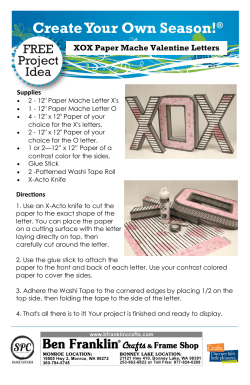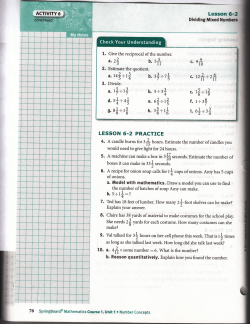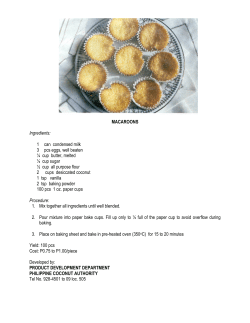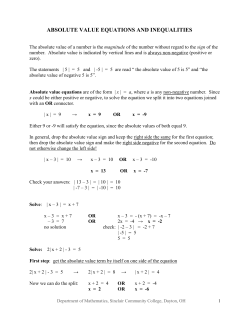
Lesson Plan - Staar Mission
Name ____________________________________________________Date _________________ Solving One-Variable Equations and Inequalities Lesson Plan Lesson Overview: In this lesson, students will write equations or inequalities requiring two solution steps to represent given problem situations, use models and algebraic properties to solve the equations or inequalities, and represent the solution(s) on a number line. Students will also verify that a given number is or is not a solution to the equation or inequality and write problem situations from a given equation or inequality. TEKS: 7.10A, 7.10B, 7.10C, 7.11A, 7.11B, and 7.11C. Procedures Copies of Engage Activity Sheet for each student scissors glue, tape or paste How can you use cups and counters to demonstrate the inverse? How are multiplication and division related? How are addition and subtraction related? How does the identity element of multiplication and addition represent balance in an equation? blank paper (one sheet per student, plus extras) scissors glue, tape, or paste optional: colored pencils or markers Access to Math Journals Make copies of the Mission Support Sheet as needed. How could you use the additive inverse to solve this inequality? How could you use the multiplicative inverse to solve this inequality? If this were an equation, what would you do to solve it? Copies of Elaborate Activity Sheet for each student scissors Make copies of the Mission Support Sheet as needed. Engage Explore Explain Elaborate E Evaluate Copies of Explore Activity Sheet for each student pair cups (about 5), beans (about 50) and two-color counters (about 30) for each student pair PL M Arrange students in pairs. Distribute cups, beans, and two-color counters and the Explore Activity Sheet to each student pair. Play the video for the class. Facilitate the students as needed in completing the activity. Display the Explore Activity Sheet Answers if desired. If desired, use the Extra Practice problems at the end of the Explore Activity Sheet. Distribute blank paper, scissors, and glue, tape, or paste. Play the video for the class. Pause and repeat as necessary for construction of foldable graphic organizer. Provide students Math Journals. Play the video to show the Journal Entry. To differentiate, provide the struggling learner with the Mission Support Sheet. Answer the Trajectory Check questions. Provide each student with the Elaborate Activity Sheet. Play the video for the class. Facilitate as students complete both Part 1 and Part 2 of the activity. To differentiate for the struggling learner provide copies of the Mission Support Sheet. If desired, display the Elaborate Answer Key. Answer the Trajectory Check questions. Display the questions or provide a printed copy of the Evaluation Questions for each student. Have students solve the problems in their Math Journal. Advance Preparation How can you identify the operation from the problem situation? What verbs do you see in the problem situation? What do the actions tell you about the operation necessary for that part of the problem? Which order to the operations need to be in? How do you know? If the cup represents x, how many cups do you need? What operation does the problem suggest that you will need to use? What is the formula for the perimeter of a rectangle? If you have 3 cups and 42 counters, how can you determine the number of counters that will belong in each cup? SA Distribute the Engage Activity Sheet, scissors, and glue, tape, or paste to each student. Play the video for the class. Facilitate students as they match each problem situation with an equation and solution. Discuss different ways to identify operations from a verbal problem situation. Display the Engage Answer Key if desired. Facilitation Questions Access to Math Journals If desired make a copy of the Evaluation Questions for each student. © Cosenza & Associates, LLC. All rights reserved. Page 1 of 1
© Copyright 2025















